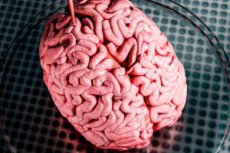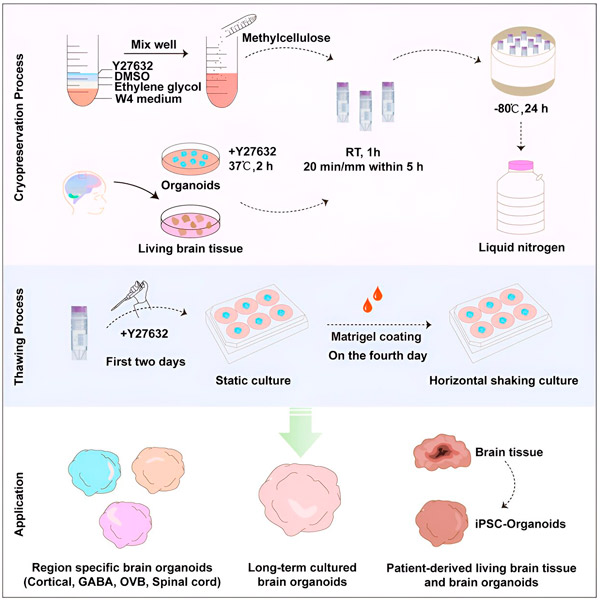New technique for freezing brain tissue without damage has been developed
Last reviewed: 14.06.2024

All iLive content is medically reviewed or fact checked to ensure as much factual accuracy as possible.
We have strict sourcing guidelines and only link to reputable media sites, academic research institutions and, whenever possible, medically peer reviewed studies. Note that the numbers in parentheses ([1], [2], etc.) are clickable links to these studies.
If you feel that any of our content is inaccurate, out-of-date, or otherwise questionable, please select it and press Ctrl + Enter.

A team of medical researchers from the National Children's Medical Center, Fudan University Children's Hospital in China has developed a technique for freezing and thawing brain tissue without damaging it.
In their study, published in the journal Cell Reports Methods, the team tested the effects of bathing brain organoids in various chemical compounds before freezing them using liquid nitrogen.
Previous studies have shown that regardless of the rate of freezing of brain matter, the process of freezing and thawing always causes tissue damage. This made the researchers' work more difficult, since the studies had to be carried out immediately after receiving the tissue sample. In a new study, a Chinese team has found a way to circumvent this problem by soaking the tissue in a special solution before freezing.
The work involved dipping or soaking brain organoids (brain tissue grown from stem cells) in various compounds and then freezing and thawing them to assess the condition of the tissue. After many tries, they found a combination of solutions that worked best—a mixture of ethylene glycol, methylcellulose DMSO, and Y27632. They called this mixture MEDY.

The research team then tested MEDY under different conditions to evaluate how well it prevented freeze damage. Conditions included varying variables such as the age of the organoids before freezing and the length of time they were soaked in the MEDY solution. They then allowed the organoids to continue to grow after thawing for up to 150 days.
The researchers found little difference between organoids that were frozen and those that were not, even if they were frozen for up to 18 months.
As a final test, the research team used their technique on a sample of brain tissue obtained from a living patient and found that it worked just as well.
The research team envisions that their technique should allow researchers to store samples of brain tissue on a scale large enough to conduct new types of research on the brain and nervous system.
